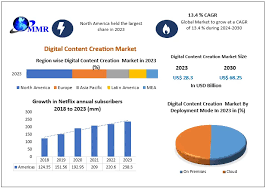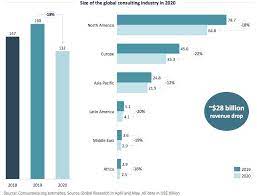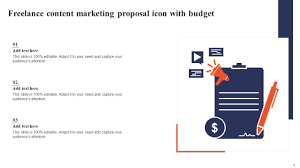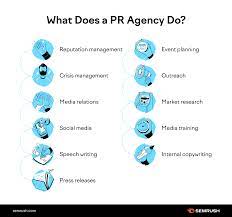Freelance Content Marketing: Unlocking the Power of Words
In today’s digital age, content marketing has become an essential tool for businesses to connect with their target audience and drive growth. And as the demand for high-quality content continues to rise, so does the need for skilled professionals who can deliver impactful content strategies. This is where freelance content marketers come into play.
Freelance content marketing offers a flexible and efficient solution for businesses looking to harness the power of words. These talented individuals bring a wealth of expertise and creativity to the table, offering their services on a project-by-project basis. They work independently, allowing businesses to tap into their skills without the need for long-term commitments or extensive overhead costs.
One of the key advantages of hiring freelance content marketers is their ability to adapt quickly to changing market trends and business needs. They stay up-to-date with industry developments and possess a deep understanding of various digital platforms, ensuring that your content resonates with your target audience across different channels.
Furthermore, freelance content marketers often have diverse backgrounds and experiences, enabling them to bring fresh perspectives and innovative ideas to your brand’s messaging. They have honed their skills through working with multiple clients across various industries, making them adept at tailoring their approach to suit different niches.
Another benefit of working with freelance content marketers is their flexibility in terms of workload and availability. Whether you need assistance on a one-off project or require ongoing support, freelancers can adapt to your specific requirements. This allows you to scale your content marketing efforts based on your business needs without being tied down by fixed contracts.
Collaborating with freelance content marketers also offers cost-effective advantages. By hiring freelancers, you can avoid the expenses associated with recruiting full-time employees or maintaining an in-house team. Freelancers typically work remotely, saving you office space costs while still delivering exceptional results.
When engaging a freelance content marketer, it’s crucial to establish clear communication channels and expectations from the start. Clearly define project goals, deadlines, and deliverables to ensure a smooth workflow. Additionally, consider requesting samples of their previous work or conducting interviews to assess their suitability for your brand.
Freelance content marketing opens up a world of possibilities for businesses seeking to enhance their online presence and engage with their target audience effectively. By leveraging the expertise of these professionals, you can create compelling content that drives traffic, increases brand awareness, and ultimately boosts conversions.
To find the right freelance content marketer for your business, consider exploring reputable freelancing platforms or seeking recommendations from industry peers. Take the time to review portfolios and testimonials to ensure you find someone who aligns with your brand’s values and objectives.
In conclusion, freelance content marketing offers an efficient and flexible solution for businesses looking to leverage the power of words in their digital strategies. With their expertise, creativity, and adaptability, freelance content marketers can help your business thrive in today’s competitive landscape. So why not unlock the potential of freelance talent and take your content marketing efforts to new heights?
9 Essential Tips for Successful Freelance Content Marketing in the UK
- Research your target audience
- Develop a content strategy
- Write compelling copy
- Optimise for SEO
- Promote your work
- Measure results
- Leverage existing content
- Networking is key
- Stay up-to-date
Research your target audience
Research Your Target Audience: The Key to Effective Freelance Content Marketing
In the world of freelance content marketing, understanding your target audience is paramount to success. Before embarking on any content creation journey, it is crucial to invest time and effort in researching and comprehending who your audience is. This valuable insight will allow you to tailor your content strategy to meet their needs, preferences, and expectations.
When you research your target audience, you gain a deeper understanding of their demographics, interests, behaviours, and pain points. This knowledge empowers you to create content that resonates with them on a personal level. By speaking directly to their needs and desires, you can establish a strong connection that drives engagement and conversions.
Start by conducting thorough market research. Identify the characteristics of your ideal customer or client. Consider factors such as age, gender, location, income level, education level, and lifestyle choices. This information will help you develop a clear picture of who you are targeting.
Next, delve into psychographic research. Understand the motivations, aspirations, challenges, and values of your target audience. What are their goals? What keeps them up at night? By answering these questions, you can tailor your content to address their specific pain points and provide valuable solutions.
Additionally, explore the online platforms where your target audience spends their time. Are they active on social media? Do they prefer reading blogs or watching videos? Knowing this information allows you to choose the most effective channels for distributing your content.
By researching your target audience thoroughly before diving into content creation, you position yourself as an expert who understands their needs intimately. This builds trust and credibility in the eyes of your audience.
Remember that research is an ongoing process. As consumer preferences evolve and new trends emerge in your industry, it’s essential to stay updated on any changes in your target audience’s behaviour or preferences. Regularly review analytics data from your website or social media platforms to gather insights and adjust your content strategy accordingly.
In conclusion, research is the foundation of effective freelance content marketing. By investing time in understanding your target audience, you can create content that resonates with them, establishes a strong connection, and drives desired outcomes. So, before you embark on any content creation journey, make sure to conduct thorough research. Your efforts will be rewarded with engaged and loyal followers who appreciate the value you provide.
Develop a content strategy
Develop a Content Strategy: The Key to Freelance Content Marketing Success
In the world of freelance content marketing, having a well-defined content strategy is like having a roadmap to success. A content strategy serves as a guiding light, helping freelancers navigate the vast landscape of digital marketing and deliver impactful results for their clients.
When developing a content strategy, the first step is to clearly define the goals and objectives of your client’s business. Understanding their target audience, brand identity, and unique selling points will enable you to create content that resonates with their customers and drives engagement.
Next, it’s essential to conduct thorough research on the industry and competitors. This will help you identify gaps in the market, discover trending topics, and gain insights into what works well for similar businesses. Armed with this knowledge, you can develop a content plan that sets your client apart from the competition.
A crucial aspect of any content strategy is defining your client’s brand voice and tone. This ensures consistency across all communication channels and helps establish a strong brand identity. Whether it’s a formal tone for professional industries or a friendly tone for consumer brands, aligning your content with your client’s brand persona is key.
Once you have defined these foundational elements, it’s time to decide on the types of content that will best resonate with your client’s target audience. This could include blog posts, social media updates, videos, infographics, or podcasts. Each type of content has its own strengths and appeals to different segments of your client’s audience.
To ensure maximum impact from your efforts as a freelance content marketer, it’s important to establish key performance indicators (KPIs) for each piece of content created. These could include metrics such as website traffic, engagement rates, lead generation, or conversion rates. Regularly monitoring these KPIs will allow you to evaluate the effectiveness of your strategies and make necessary adjustments along the way.
In addition to creating compelling content, distribution is a vital component of any content strategy. Identify the most appropriate channels to reach your client’s target audience, whether it’s through social media platforms, email marketing, guest blogging, or industry publications. Tailor your distribution approach to maximize visibility and engagement.
Lastly, as a freelance content marketer, it’s important to stay agile and adapt your content strategy as needed. Monitor industry trends and changes in consumer behavior to ensure that your client’s content remains relevant and effective. Continuously evaluate the performance of your content and be open to refining your approach for optimal results.
In conclusion, developing a robust content strategy is crucial for success in freelance content marketing. By understanding your client’s goals, researching the market, defining brand voice, creating engaging content types, setting measurable KPIs, choosing effective distribution channels, and staying adaptable, you can deliver exceptional results that drive business growth. So take the time to develop a solid content strategy and unlock the true potential of freelance content marketing.
Write compelling copy
In the world of freelance content marketing, one tip reigns supreme: write compelling copy. Compelling copy has the power to captivate your audience, engage them on a deeper level, and ultimately drive them to take action.
When it comes to writing compelling copy, it’s all about understanding your target audience. Take the time to research their needs, desires, pain points, and aspirations. This knowledge will lay the foundation for crafting copy that resonates with them and speaks directly to their emotions.
Start by grabbing their attention with a captivating headline or introduction. Use powerful words or intriguing questions that immediately pique their curiosity. Once you have their attention, keep them engaged by delivering valuable information or insights that address their specific challenges or interests.
To make your copy truly compelling, inject it with emotion. Appeal to your audience’s feelings by telling stories or using relatable examples that evoke empathy or excitement. Emotionally charged copy has a lasting impact and can create a strong connection between your brand and your audience.
Another important aspect of compelling copy is being clear and concise. Avoid jargon or complex language that may confuse your readers. Instead, use simple and straightforward language that is easy to understand. Break up your text into shorter paragraphs and use subheadings to make it more scannable and digestible.
Additionally, be persuasive in your writing. Highlight the benefits of your product or service and explain how it can solve your audience’s problems or improve their lives. Use testimonials or case studies to provide social proof and build trust with potential customers.
Lastly, don’t forget about the importance of a strong call-to-action (CTA). After captivating your readers with compelling copy, guide them towards the next step you want them to take. Whether it’s signing up for a newsletter, making a purchase, or contacting you for more information, make sure your CTA is clear, concise, and enticing.
Writing compelling copy is an art that takes practice and refinement. It requires a deep understanding of your audience, a creative mindset, and the ability to communicate effectively. By mastering the art of compelling copy, you can elevate your freelance content marketing efforts and achieve remarkable results.
Remember, in the world of freelance content marketing, words have the power to inspire action. So, take the time to craft compelling copy that grabs attention, evokes emotion, and motivates your audience to engage with your brand.
Optimise for SEO
Optimise for SEO: Boosting Your Freelance Content Marketing Success
In the world of freelance content marketing, one tip stands out as a game-changer: optimising your content for search engine optimisation (SEO). By incorporating SEO best practices into your content strategy, you can significantly enhance your online visibility, attract more organic traffic, and ultimately drive business growth.
SEO is all about making your content more discoverable by search engines like Google. When people search for relevant keywords or phrases related to your industry or offerings, you want your content to appear prominently in the search results. Here’s how you can optimise your freelance content marketing efforts for SEO success:
- Keyword Research: Start by conducting thorough keyword research. Identify the words and phrases that people commonly use when searching for topics related to your niche. Tools like Google Keyword Planner or SEMrush can help you find relevant keywords with high search volumes and low competition.
- On-Page Optimisation: Once you have identified target keywords, strategically incorporate them into your content. Optimize elements such as page titles, headings, meta descriptions, and URL slugs with relevant keywords. However, remember to maintain a natural flow and avoid keyword stuffing.
- High-Quality Content: Search engines prioritize high-quality, informative content that provides value to users. Focus on creating engaging and well-researched articles, blog posts, or other forms of content that address the needs and interests of your target audience.
- Link Building: Building quality backlinks is another crucial aspect of SEO. Seek opportunities to collaborate with other websites or bloggers in your industry who can link back to your content. This not only drives referral traffic but also signals to search engines that your content is trusted and authoritative.
- Mobile-Friendly Design: With the increasing use of mobile devices for internet browsing, it’s essential to ensure that your website and content are mobile-friendly. Responsive design ensures that your content displays optimally across different screen sizes, improving user experience and SEO rankings.
- Speed and Performance: Page loading speed is a crucial factor in SEO. Optimise your website’s performance by compressing images, minifying code, and leveraging caching techniques. A fast-loading website improves user experience and increases the likelihood of higher search engine rankings.
- Regular Updates: Search engines favor websites that regularly publish fresh content. Consistently updating your website with new blog posts or articles signals to search engines that your site is active and relevant. Aim for a consistent content publishing schedule to maintain visibility.
By incorporating these SEO tips into your freelance content marketing strategy, you can significantly improve your chances of reaching a wider audience and attracting more potential clients or customers. Remember, SEO is an ongoing process, so monitor your performance regularly, analyze data, and make necessary adjustments to stay ahead of the competition.
In a competitive freelance landscape, optimising for SEO can be the key to unlocking greater success in content marketing. So take the time to understand SEO best practices, implement them effectively, and watch as your freelance business thrives in the digital realm.
Promote Your Work: The Key to Success in Freelance Content Marketing
As a freelance content marketer, your success depends not only on delivering exceptional work but also on effectively promoting your services. In a competitive market, it’s crucial to showcase your skills and attract potential clients. Here are some tips to help you promote your work and stand out in the world of freelance content marketing.
First and foremost, build a strong online presence. Create a professional website or portfolio that highlights your expertise, showcases your previous work, and provides information about the services you offer. Make sure your website is visually appealing, easy to navigate, and reflects your unique style as a content marketer.
Leverage social media platforms to amplify your reach. Establish profiles on relevant platforms such as LinkedIn, Twitter, or Instagram and share valuable content related to content marketing. Engage with industry peers, join relevant groups or communities, and participate in discussions to establish yourself as an authority in the field.
Consider creating a blog where you can share insights, tips, and case studies related to content marketing. This not only demonstrates your expertise but also helps drive traffic to your website. Share your blog posts on social media platforms and engage with readers through comments and discussions.
Networking plays a vital role in promoting your work as a freelance content marketer. Attend industry events, conferences, or webinars where you can connect with potential clients or collaborators. Exchange business cards or contact details with professionals you meet and follow up with personalized messages expressing interest in working together.
Don’t underestimate the power of testimonials and referrals. Request feedback from satisfied clients and showcase their testimonials on your website or portfolio. Positive reviews from previous clients can significantly boost your credibility and attract new opportunities. Additionally, ask satisfied clients if they would be willing to refer you to their network or provide recommendations on professional platforms like LinkedIn.
Consider offering free resources such as e-books, templates, or guides related to content marketing. This not only adds value to your audience but also helps establish you as a trusted resource in the field. Collect email addresses from interested individuals to build a mailing list and stay in touch with potential clients through newsletters or updates about your latest projects.
Lastly, never underestimate the power of word-of-mouth marketing. Deliver exceptional work and provide outstanding customer service to every client you work with. Happy clients are more likely to recommend you to others, leading to more opportunities for growth.
Promoting your work as a freelance content marketer is essential for building your brand, attracting clients, and establishing yourself as a trusted professional in the industry. By leveraging online platforms, networking, testimonials, free resources, and delivering exceptional work, you can position yourself for success in the competitive world of freelance content marketing.
Measure results
When it comes to freelance content marketing, one tip that cannot be emphasized enough is the importance of measuring results. In the dynamic world of digital marketing, tracking and analyzing the impact of your content efforts is crucial for success.
Measuring results allows you to understand what strategies are working and what areas need improvement. It provides valuable insights into the effectiveness of your content in driving engagement, generating leads, and ultimately achieving your business goals.
One key metric to monitor is website traffic. By using tools like Google Analytics, you can track the number of visitors to your site and identify which pieces of content are attracting the most attention. This information helps you understand what topics resonate with your audience and can guide future content creation.
Another important metric is conversion rate. Whether it’s getting visitors to sign up for a newsletter, make a purchase, or fill out a contact form, tracking conversions allows you to evaluate how well your content is driving desired actions. By monitoring conversion rates, you can optimize your content strategy to maximize results.
Engagement metrics such as social media likes, comments, shares, and click-through rates also provide valuable insights into how well your content is resonating with your audience. These metrics help you gauge the level of interest and interaction generated by each piece of content and refine your approach accordingly.
In addition to quantitative metrics, qualitative feedback is equally important. Pay attention to comments, reviews, and direct messages from your audience. This feedback can offer valuable insights into what aspects of your content are resonating with them or where improvements can be made.
Regularly reviewing and analyzing these metrics enables you to make data-driven decisions about your freelance content marketing strategy. It allows you to identify trends, adjust tactics if necessary, and focus on producing high-performing content that delivers tangible results.
Remember that measuring results should not be a one-time activity but an ongoing process. Continuously monitor key metrics over time to identify patterns and measure progress towards achieving your goals. This iterative approach allows you to refine and optimize your content marketing efforts for maximum impact.
In conclusion, measuring results is a vital aspect of freelance content marketing. By tracking and analyzing key metrics, you gain insights into the effectiveness of your content strategy and can make data-driven decisions to drive better results. So, don’t underestimate the power of measurement in unlocking the full potential of your freelance content marketing efforts.
Leverage existing content
Leverage Existing Content: A Game-Changing Tip for Freelance Content Marketing
As a freelance content marketer, one of the most valuable tips you can embrace is to leverage existing content. In a world where creating fresh, high-quality content is a constant challenge, making the most of what you already have can be a game-changer.
When it comes to leveraging existing content, there are several strategies you can employ. Firstly, repurposing is key. Take your existing blog posts, articles, or videos and transform them into different formats. For example, turn a blog post into an engaging infographic or repurpose an article into a captivating podcast episode. This not only saves time and effort but also allows you to reach new audiences through different channels.
Another effective way to leverage existing content is through updating and refreshing it. As industry trends evolve and information becomes outdated, revisiting your older pieces can breathe new life into them. Update statistics, add fresh insights, or incorporate recent case studies to make the content relevant again. By doing so, you not only provide value to your audience but also improve your search engine rankings by keeping your website up-to-date.
Additionally, consider creating curated content. This involves gathering valuable resources from various sources and presenting them in a cohesive manner for your audience. By curating relevant articles, videos, or social media posts on a particular topic, you position yourself as an expert in your field while saving time on creating original content from scratch.
Don’t forget about user-generated content (UGC) as well. UGC refers to any form of content created by your audience or customers that showcases their experiences with your brand. Incorporating UGC into your content marketing strategy adds authenticity and builds trust among potential customers.
Lastly, collaboration is key when it comes to leveraging existing content. Reach out to fellow freelancers or industry experts and explore opportunities for guest blogging or co-creating content together. By combining expertise and resources, you can create powerful content that benefits both parties and expands your reach to new audiences.
In conclusion, leveraging existing content is a smart and strategic approach for freelance content marketers. Whether through repurposing, updating, curating, or collaborating, maximising the potential of your existing content can save time, enhance your brand’s visibility, and engage your target audience effectively. So embrace this game-changing tip and unlock the hidden potential of your content library today!
Networking is key
Networking is Key: The Secret to Success in Freelance Content Marketing
In the world of freelance content marketing, one tip stands out as a game-changer: networking. Building strong connections and nurturing relationships within the industry is key to unlocking success and opening doors to new opportunities.
As a freelance content marketer, your network is your most valuable asset. It’s not just about collecting business cards or connecting on social media; it’s about fostering genuine relationships with like-minded professionals who can support and collaborate with you on projects.
Networking allows you to tap into a vast pool of knowledge and experience. By engaging with others in your field, you gain insights into industry trends, best practices, and emerging opportunities. These interactions can spark inspiration and help you stay ahead of the curve in an ever-evolving digital landscape.
When attending industry events or joining online communities, be open to meeting new people and sharing your own expertise. Engage in conversations, ask questions, and offer valuable insights. Remember that networking is a two-way street; it’s not just about what you can gain but also what you can contribute.
One of the most powerful aspects of networking is the potential for collaboration. By connecting with fellow freelancers or agencies specializing in complementary services, you can form strategic partnerships that benefit both parties. Collaborations allow you to expand your service offerings, take on larger projects, and deliver even greater value to your clients.
Additionally, networking helps build your reputation as a trusted professional within the industry. When others see that you actively engage with peers and contribute positively to discussions, they are more likely to refer clients or recommend you for new opportunities. Word-of-mouth referrals are incredibly powerful in freelancing and can lead to a steady stream of work.
Don’t limit yourself to only networking within your immediate circle; explore diverse avenues for connection. Attend industry conferences, join relevant online communities or forums, participate in webinars or workshops – these platforms provide excellent opportunities to meet new people, learn from experts, and showcase your expertise.
Remember that networking is not just about promoting yourself; it’s about building meaningful relationships based on trust and mutual support. Be genuine in your interactions, listen actively, and offer help when you can. By nurturing these connections, you create a network of professionals who are willing to collaborate, share knowledge, and refer clients.
In the world of freelance content marketing, networking truly is the secret to success. Embrace the power of building connections within your industry and watch as doors open, opportunities arise, and your professional growth reaches new heights. So get out there, engage with others, and let networking be the catalyst that propels your freelance content marketing career forward.
Stay up-to-date
In the fast-paced world of freelance content marketing, staying up-to-date is a crucial tip for success. As the digital landscape evolves, so do the strategies and techniques that drive effective content marketing campaigns. By keeping yourself informed and continuously learning, you can stay ahead of the curve and deliver exceptional results to your clients.
One of the key reasons to stay up-to-date is to understand the latest trends and consumer behaviours. The digital realm is constantly evolving, with new platforms, technologies, and algorithms shaping the way content is consumed. By staying informed about these changes, you can tailor your strategies to meet the preferences of your target audience.
Staying up-to-date also allows you to remain competitive in a crowded freelance market. Clients are always looking for professionals who are knowledgeable about industry developments and can offer fresh perspectives. By investing time in learning and expanding your skill set, you position yourself as a valuable asset to your clients.
Continuous learning also helps you refine your existing skills and acquire new ones. Attend webinars, read industry blogs, join online communities, or enroll in relevant courses to enhance your expertise. This not only benefits your clients but also boosts your confidence as a content marketer.
Moreover, staying up-to-date enables you to adapt quickly to changes in algorithms or platform policies. For example, search engine optimization (SEO) techniques evolve regularly as search engines update their algorithms. By keeping abreast of these changes, you can optimize content effectively and ensure it reaches its intended audience.
To stay up-to-date effectively, consider setting aside dedicated time each week for research and learning. Follow influential thought leaders in the industry on social media platforms or subscribe to newsletters that provide insights into emerging trends. Engage in discussions with fellow freelancers or attend virtual conferences where experts share their knowledge.
Remember that staying up-to-date is not just about acquiring information; it’s about applying that knowledge effectively. Experiment with new strategies or tools and measure their impact on your campaigns. Keep track of what works and what doesn’t, and adjust your approach accordingly.
In the world of freelance content marketing, knowledge truly is power. By staying up-to-date, you position yourself as a trusted professional who can deliver results in a rapidly changing digital landscape. So, embrace the learning journey and make it a priority to stay informed. Your clients will appreciate your dedication, and your career as a freelance content marketer will flourish.








